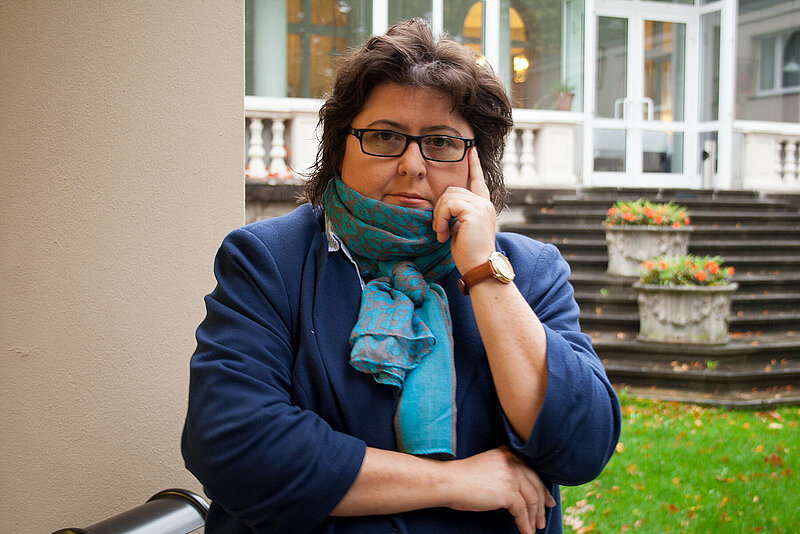
Europeans turn a blind eye to President Erdogan's democratic lapses, writes Alina Mungiu-Pippidi.
Those European leaders who rushed to welcome the restoration of a constitutional order in Turkey should think better. President Recep Tayyip Erdogan himself started the subversion of this particular order a while ago, to little international indignation.
Ahead of the abortive coup in Turkey, the NATO member (and European Union candidate) country could hardly have been called a democracy. Freedom House ranks it as partly free, lacking in civil liberties and, especially, press freedom. Erdogan had already changed the constitution to be elected directly by the people, after ruling the country in various forms since 1996 and repeatedly bending the Constitution. In the last two years, he undertook a series of measures which no democrat would endorse:
- He removed or replaced prosecutors and judicial police personnel to stop corruption investigations against his family and some ministers close to him, with no protest from Brussels. In contrast: any moves by magistrates in Romania or Bulgaria must be sanctioned through the continuing biannual Cooperation and Verification Mechanism as part of post-accession conditionality.
- He removed dozens of elected Kurdish mayors and stripped several MPs from Kurdish parties of their parliamentary immunity on grounds that they lacked loyalty to the state.
- He arrested dozens of critical journalists, brought hundreds of cases of alleged libel toward him to court and granted large public works concessions to oligarchs in exchange for their acquisition of critical media outlets and their promise of favorable coverage.
- He allowed thousands of boats to transport refugees from Syria to Europe from the Turkish coast, yet once Germany (and its European partners) agreed to his conditions, it was clear he could easily put a stop to this.
- He intervened in Syria in an intransparent manner and without consulting international partners, allowing thousands of jihadists to pass through the border in the months before the French terror attack last year.
Erdogan has for many years pursued a clear agenda of dismantling the constitutional order of modern secular Turkey, following his own wisdom from when he was mayor of Istanbul and declared that the West could be beaten with its own weapon: democracy. Already earlier he took control of large parts of the army, arresting hundreds of officers under the pretext of an earlier coup that was never proven. He forced their sentencing, resulting in over two hundred acquittals on grounds of falsified evidence. Following last weekend’s events, he had a list of nearly three thousand magistrates to be dismissed or arrested, including Constitutional Court judges, when the dust from the coup had barely settled. The OSCE declared Turkey’s last election problematic, due to intimidation, the use of administrative resources in his support and even limited fraud.
Being endorsed by a majority of voters does not mean much under such circumstances. Russian President Vladimir Putin enjoys a similarly strong electoral mandate. In such environments of intimidation and manipulation of democracy, the word ‘mandate’ loses its meaning. It increasingly appears that the attempted coup was, to a large extent, motivated by the military’s desire to defend itself from imminent plans to take over what was left of the army and judiciary through politicisation. A military coup is indisputably not the solution to the problems of a democracy. But this does not mean that world leaders who rushed to defend Turkey’s constitutional order have a remedy for Erdogan’s long-time constitutional subversion. This subversion is much worse than Hungarian leader Viktor Orban’s actions, against which Western leaders were very vocal. They had little to fear in view of Hungary’s relatively minor military role compared to Turkey. Both the EU and the United States have tried for many years now to ignore the degradation of democracy in Turkey, as they saw no solution to it. Erdogan will now use the opportunity, which he called ‘God’s gift’, to destroy what was left of any executive constraints.
If Erdogan is no better than Putin, and Europe is to deal with two such ruthless leaders on its borders, we need to change the game and put an end to hypocrisy. Turkey is still the largest aid recipient of EU funds: since 2002, even before the migration crisis, they have received over one billion euros a year to strengthen the rule of law. Today here we are, on one side Europeans distracted by chasing funny Pokémons, on the other side neighbouring states playing a Game of Thrones in which they eliminate real people. It’s not just the French who should start calling their reservists to volunteer duty. We need a widespread understanding that we are on the precipice of a new era in which our normative order is openly defied on our borders, including the terrible spillover that we already see. Security free-riding is over. If we want real democracy and human rights, we have to be prepared to pay the price for it.
More about the author
-
Alina Mungiu-Pippidi, Professor of Democracy Studies
